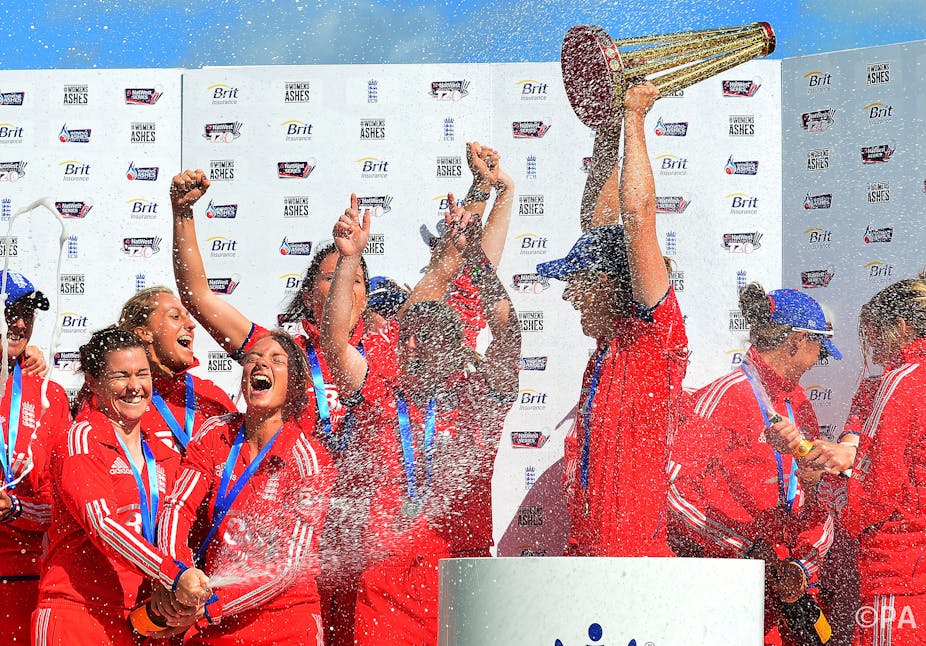England retained the Ashes in 2014. That’s not a wistful statement from a parallel universe, it’s a fact. A fact relating to women’s cricket, though, not men’s.
As crestfallen fans will know, the men lost the Ashes in a particularly abject 5-0 collapse, a series which has been variously described as dismal and disastrous. But the women’s cricket team won their 2013-14 series.
That’s cricket. You can’t win them all, as fans understand, and it certainly doesn’t detract from the women’s success that England’s men did so badly. Still, the contrast in fortunes must have played a part in the England and Wales Cricket Board’s decision to give the women’s team professional status and significant pay rises.
My initial response was that it’s about time. For too long, women have had to finance themselves as international competitors, even to the extent of having to buy their own blazers. Sport has to be visible for its excitement, complexities and stories to be available to a wide public. And to achieve visibility, there has to be financial investment.
We need to know the names of athletes in order to follow their progress, and the success of the England women’s team has put names like captain Charlotte Edwards and Sarah Taylor into the spotlight. It’s not surprising that Edwards, ranked third in the women’s T20, expressed her pleasure at the news that women’s cricket was going professional.
In celebrating this recognition, players and managers of women’s cricket also acknowledged the influence of the Chance to Shine project that has helped children in inner city areas and state schools take up the game (as compared to the dominance of privately educated players in the men’s team).
Women cricketers acknowledge the huge support which many have gained from the Chance to Shine programme. It’s an admirable initiative, but it sees women lumped in with deprived areas as if women’s sport were either a worthy cause or a troublesome problem that requires intervention.
This charitable discourse and the classification of women as a disadvantaged group still haunts sport, so the move to professionalism in cricket is a watershed. Responses are positive and at least there has not been any public outcry about the resources which might go to women’s cricket coming at the expense of the men’s sport.
It remains the case that women feel compelled to be grateful for whatever support they get. We’ve still got a long way to go but this is progress. Most importantly, it’s a chance for us to watch more cricket, and that’s definitely in the interests of the game.

